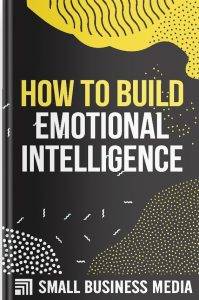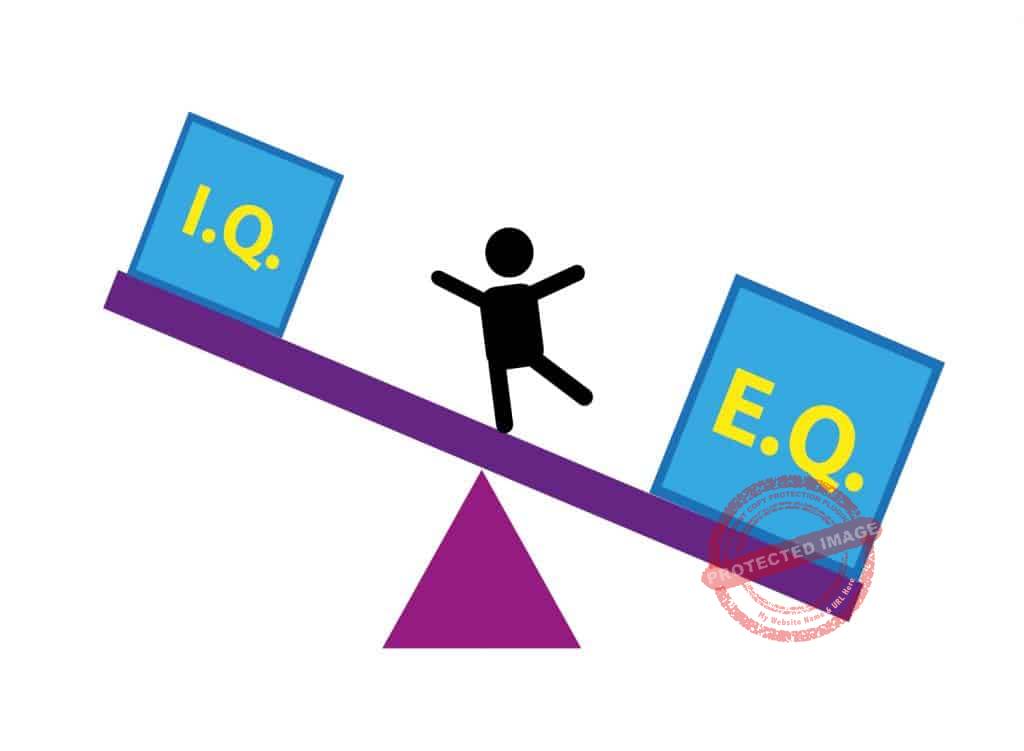Are you interested in learning how to build emotional intelligence so that you can be a better person and create more lasting relationships?
Do you want to learn to understand the feelings of other people better?
Do you want to learn to understand your emotions better so you can become more self-aware?
Self-awareness is a term that is used to describe the extent to which a person understands his or her behavior and abilities.
It is also one of the components or elements of emotional intelligence.
The level of your emotional intelligence greatly influences your behavior and the kind of relationships you create.
Hence, building emotional intelligence can help to improve the overall quality of your life and the kind of relationships that you build.
That’s just one of the benefits of having emotional intelligence.
Read on to find out how you can build emotional intelligence.
How To Build Emotional Intelligence
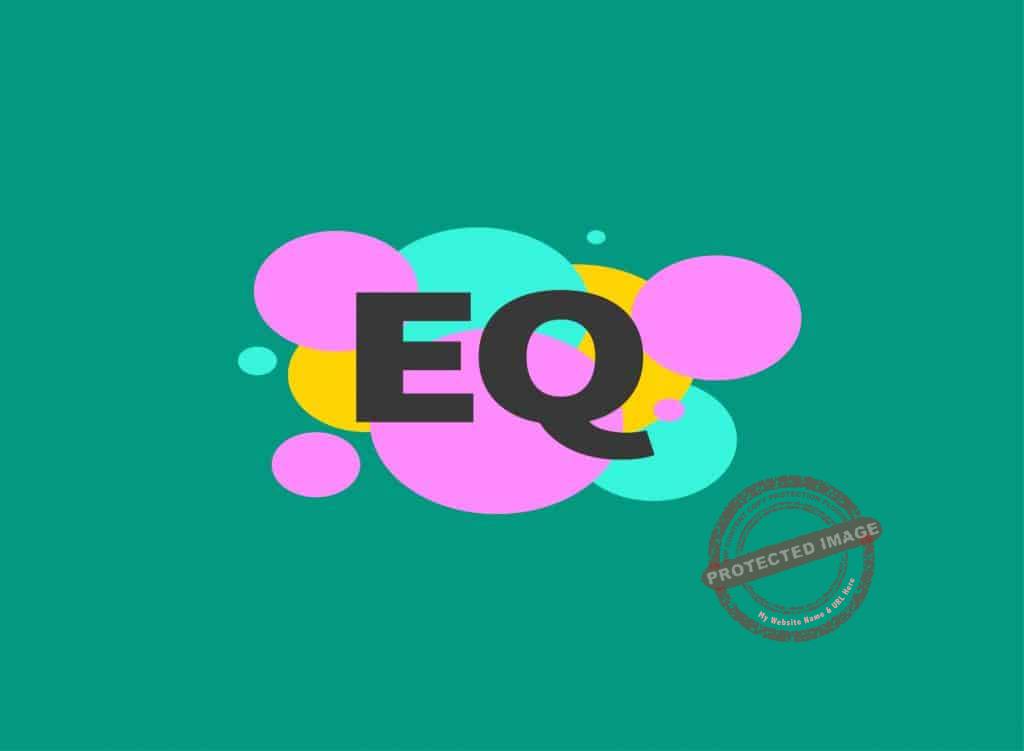
Emotional intelligence is a term that has been quite popular for a very long time and it is still very much relevant in these present times.
Business owners, leaders, entrepreneurs, and anyone who wants to be successful should pay serious attention to this aspect of their lives.
Before we move on to discover how to build emotional intelligence; let’s get to understand the basics first.
Hence, let’s consider the following concepts.
- What does emotional intelligence mean
- Elements of emotional intelligence
- Signs of low emotional intelligence
- The importance of building emotional intelligence (How is building emotional intelligence beneficial to you)
What Does Emotional Intelligence Mean

Emotional intelligence is also known as Emotional Quotient[EQ]
It is the ability to recognize and manage your own emotions and that of others.
The term emotional intelligence was developed by two researchers John Mayer and Peter Salovey.
However, the term gained popularity through Dan Goleman who wrote a book about emotional intelligence titled; Emotional Intelligence.
The two researchers defined emotional intelligence as;
- the ability to recognize, understand and manage our own emotions
- the ability to recognize, understand, and influence the emotions of others.
Overall, emotional intelligence means being conscious of your emotions and that of others.
Signs Of Low Emotional Intelligence
What are some of the tell-tale signs that you have low emotional intelligence?
You can tell that you have low emotional intelligence if you;
- always feel misunderstood
- don’t take responsibility for your actions
- insensitive to other people’s feelings
- you are quick to blame others for how you feel
- feel stressed most of the time
- hold grudges
- are easily offended
- take things too personal
- don’t know your strengths and weaknesses
- always don’t understand your feelings and reasons behind your actions
- can’t express your feelings
- make assumptions easily and try to defend them by making up evidence to support your claims
- run away from challenges and adversity
- feel unsure of yourself
- can’t control your emotions and reactions
The Importance Of Emotional Intelligence

You might begin to wonder why is building emotional intelligence such a big deal.
Emotional intelligence is important for the following reasons;
- It determines your overall personality
- Also, it is what determines your ability to persist and be resilient in the face of adversity.
- It determines your performance level as an individual.
- It is what determines how you build relationships with people either personal, social, business, or work relationships.
- More so, it determines your decision-making abilities.
- Emotional intelligence is also important because it helps you manage stress thus improving your physical and mental health.
Elements Of Emotional Intelligence
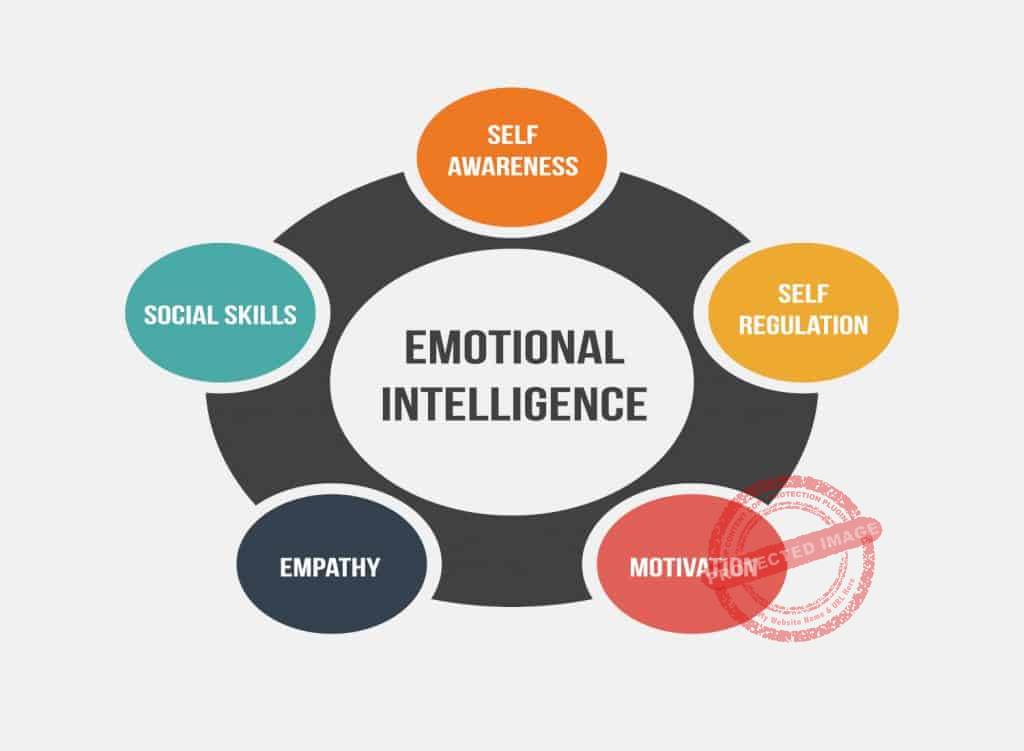
Daniel Goleman identified five things that can help you achieve emotional intelligence.
They are also known as the components of emotional intelligence and they include;
- Self-awareness
- Self-regulation
- Motivation
- Empathy
- Social skills
These are also known as the traits an emotionally intelligent individuals possess.
We’ll go into more detail on this below when we consider how to build emotional intelligence.
How To Build Emotional Intelligence
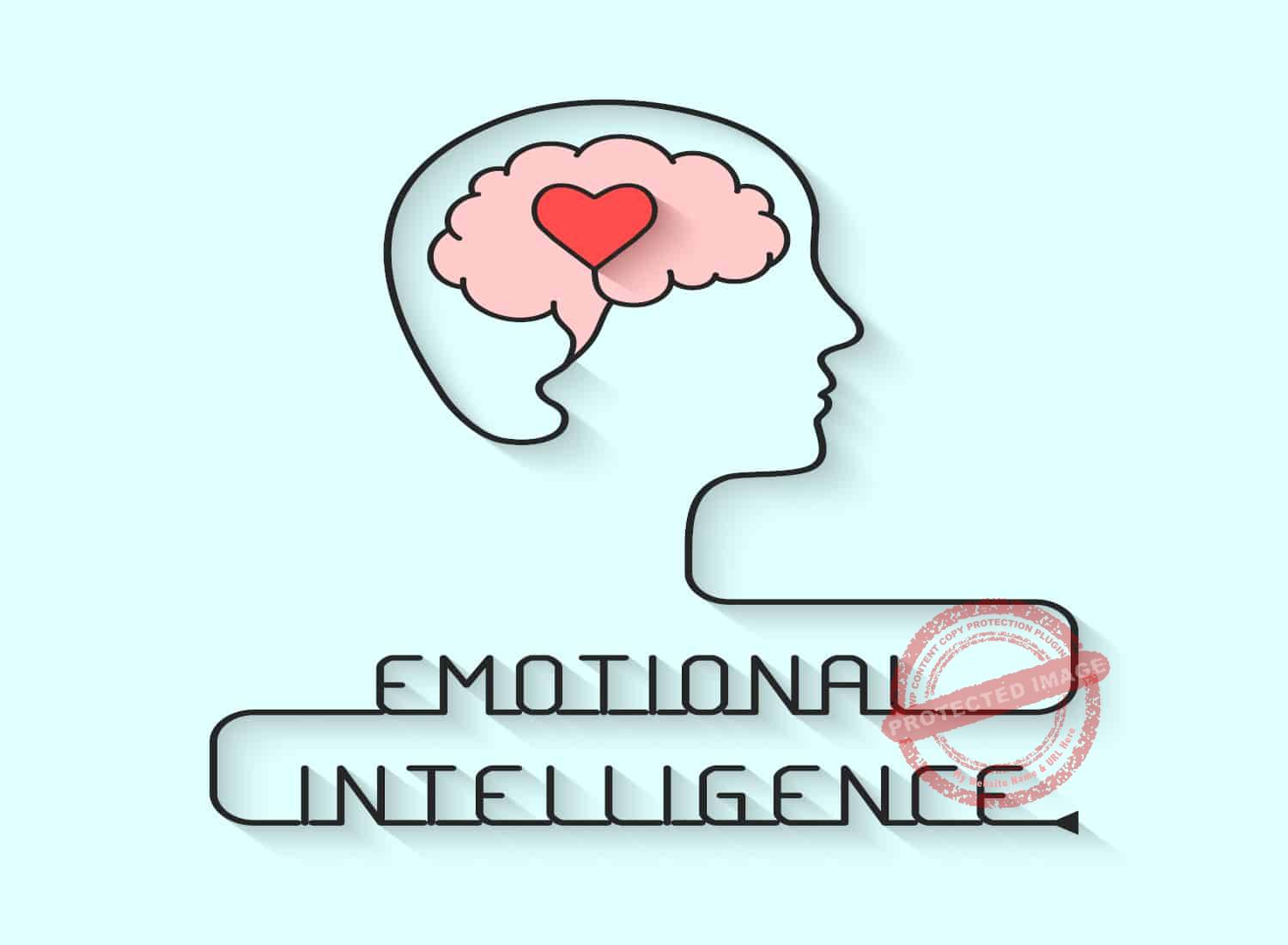
Now that we have a proper understanding of the concept of emotional intelligence, let’s move on to how to build emotional intelligence.
We’ll be considering how to looking at how to build emotional intelligence by looking at the elements of emotional intelligence.
In other words, you can learn to build emotional intelligence by working on these 5 key elements of emotional intelligence and they are;
Develop Self- Awareness

As earlier on stated, this is the ability to understand every aspect of your behavior, emotions, and actions.
Self-awareness means having a deep understanding of your feelings, habits, actions, strengths, weaknesses, and the reasons for your actions.
It involves studying your patterns of behavior and trying to understand them.
It also involves understanding how your feelings affect other people around you and your relationship with them.
To become more self-aware, Goleman states that you must be able to monitor and identify your emotions.
Hence, you can build emotional intelligence by becoming more self-aware.
How to develop self-awareness so you can build emotional intelligence
- Learn to keep track of your thoughts (you could consider keeping a thought journal)
- Ask yourself thoughtful questions about the way you talk, act, and feel.
- More so, question your values and beliefs and your reason for holding such values.
- Reflect on your childhood and memories and take note of how you felt.
- Practice self-meditation and mindfulness
- Ask for feedback from friends and family about your behavior.
- Take personality tests.
- Take up new hobbies, learn new things.
- Put yourself in new situations and take note of how you adapt, cope, and react.
- Practice self-reflection.
- Question your decisions.
- Try to identify your strengths and weaknesses.
Overall, these are activities that can reveal your traits, habits, and personality.
Thus helping you achieve self-awareness.
Consequently, helping you build emotional intelligence.
Practice Self-regulation
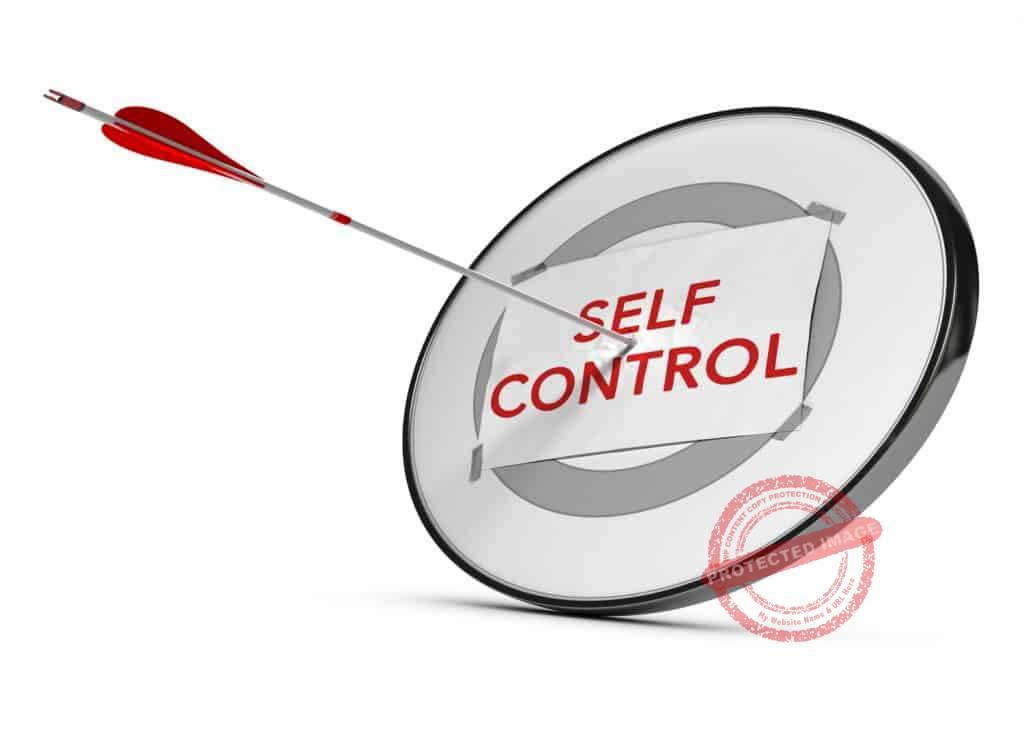
This is the second element that can help you build emotional intelligence.
Self-regulation can also be termed self-control.
This is the ability to control your emotions.
In other words, it is being able to control/regulate how your emotions when you speak, act, and react to other people.
Self-regulation also entails having control over your emotions when people act irrationally to you.
It also determines how you react to situations.
It is showing emotional maturity by being able to control your emotions.
Hence if you want to be emotionally intelligent, you need to learn to control your emotions.
How to practice self-regulation so you can build emotional intelligence
- Cultivate the habit of being mindful and living in the present moment( this would help you to be more aware of your present environment)
- Practice cognitive reappraisal(this involves making conscious efforts to change your thought patterns)
- Practice self-discipline
- Be open to change (Learn to adapt to change and different environments while staying positive.)
- Identify your triggers and what makes you tick and learn to control your feelings in those areas.
- Practice being calm under pressure.
- Always think before you act/speak.
- Always remind yourself of the consequences of what your actions could be.
Overall, by learning to control or regulate your emotions, you’ll be able to keep your emotions in check always.
Thus helping you build emotional intelligence.
Be Intrinsically Motivated
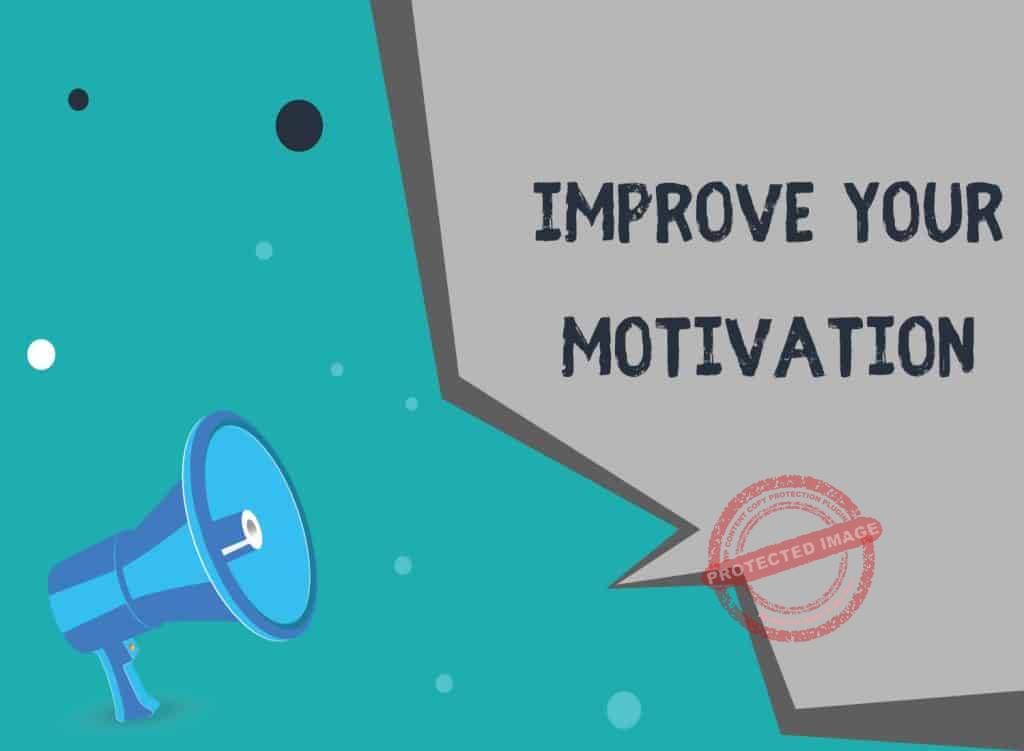
Self-motivation is the third element of emotional intelligence that Goleman identified as what makes a person emotionally intelligent.
How do you get motivated?
Do you get internally or externally motivated?
How do you react in the face of adversity?
Do you give up easily or do you see challenges as an opportunity to learn and grow?
Goleman states that a person with emotional intelligence would be motivated and committed to complete a task.
More so, an emotionally intelligent person would not be deterred from achieving his/her goals in the face of adversity.
In other words, an emotionally intelligent person is more intrinsically motivated to achieve his/her goals even in the face of adversity.
Emotional intelligence involves being able to motivate yourself without external support or help from others.
So if you want to build emotional intelligence, you’ll need to be more intrinsically motivated.
Here’s how to cultivate intrinsic motivation to help you build emotional intelligence
- Set goals that are based on achieving internal fulfillment.
- Tie your goals to a higher purpose.
- More so, seek to pursue goals that are in line with your passion.
- Write your goals in your journals so you can always refer back to them to remind yourself of why the goals are important to you.
- Have a positive mindset towards your goals and situations.
- Be certain about what you want to achieve.
- Practice self-affirmations/positive self-talk.
Motivation is having the internal strength or force to keep pushing when you encounter tough situations.
By becoming more self-motivated, you’ll be able to control how you react to tough situations.
Thus helping you build emotional intelligence.
Develop Empathy
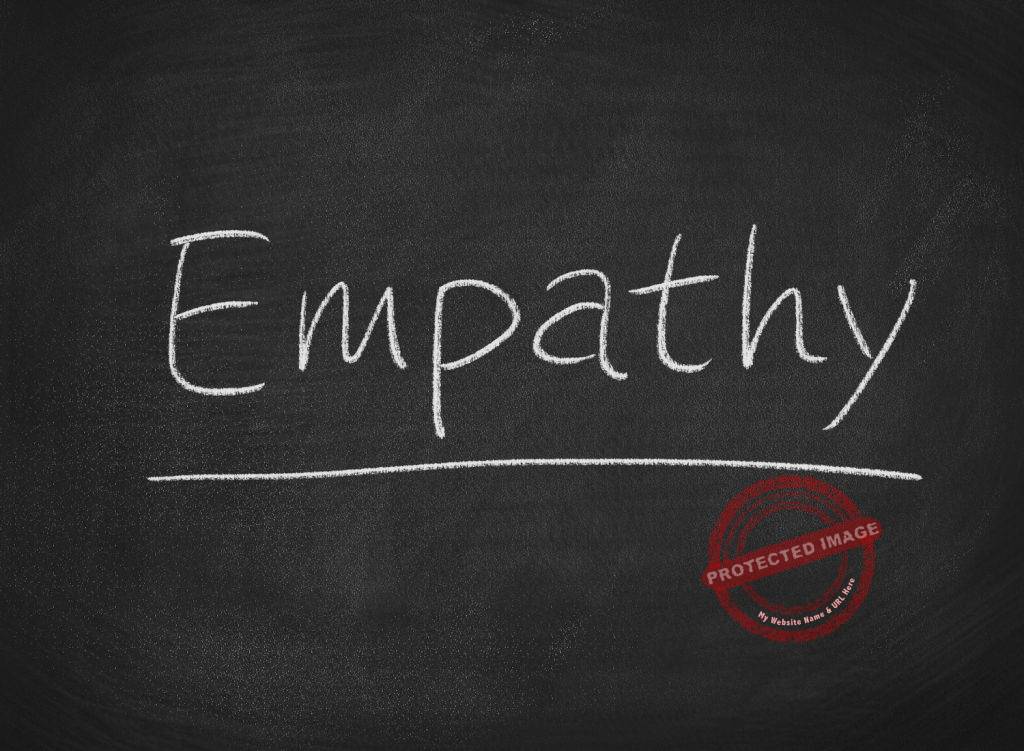
This is an element of emotional intelligence that involves being able to understand other people’s emotions.
Empathy is the ability to understand and share the feelings of other people.
It also means having concern for other people’s emotions and reactions.
To achieve this you have to be able to understand your emotions before you can understand the emotion of others.
It involves understanding the emotions of others and responding to their emotions appropriately.
In other words, when you sense people’s feelings how do you react to them?
As an emotionally intelligent person, you should be put yourself into some else’s shoes.
You should always think if you were in their shoes how would you react?
Hence, to build emotional intelligence, you should be empathic.
Here’s how to develop empathy so you can build emotional intelligence
- Develop a sense of curiosity to understand people and their behaviors.
- Be willing to meet new people.
- Be more of an active listener.
- Always picture yourself in other people’s conditions.
- Identify and try to understand other people’s experiences.
- Always keep an open mind when interacting with people.
- Develop a sincere interest in other people.
- See things from other people’s perspectives.
- Be conscious of the impact of your actions on other people.
By learning to understand other people’s feelings you’ll be able to interact with them appropriately.
Thereby making you an emotionally intelligent individual.
Thus helping you build emotional intelligence.
Develop Social Skills (Managing Relationships With People)

This is the last element of emotional intelligence that you’ll need to develop if you want to build emotional intelligence.
Social skills are known as the skills that we use to interact and communicate with each other.
They include things such as verbal and non-verbal gestures, body language, personal appearance among others.
It involves possessing adequate social skills that can help you foster healthy relationships with the people around you.
Goleman states that emotional maturity/intelligence in this aspect involves having good communication skills.
It also involves having good time-management skills, people management skills, and the ability to resolve difficult situations/conflicts using persuasion or negotiation.
By building your social skills you’ll be able to acquire the necessary skills to handle and influence other people’s emotions.
Hence, to achieve emotional intelligence as a person, you’ll need to have good social skills.
Here’s how to develop social skills so you build emotional intelligence
- Practice active listening.
- Learn social skills such as effective communication skills, leadership skills, conflict management skills among others.
- Master the art of persuasion.
- Make it a habit to meet new people and engage in meaningful conversations.
Overall, building emotional intelligence is tied to developing yourself in the five elements of emotional intelligence.
Hence, to build emotional intelligence, you need to be;
- Firstly you need to understand your emotion (self-awareness).
- Secondly, you need to be able to manage your emotions (self-regulation).
- After learning to manage your emotions, you need to effectively use your emotions to achieve your goals (self-motivation).
- Furthermore, after gaining a complete understanding of your emotions and how you use them, you move on to understanding other people’s emotions (empathy).
- Lastly, you move on to using your knowledge of other people’s emotions to influence them(social skills).
These five elements according to Daniel Goleman are what make you an emotionally intelligent individual.
So, if you want to build emotional intelligence, work on developing these elements of emotional intelligence.
Benefits Of Building Emotional Intelligence

Emotional intelligence is beneficial to you because it helps you achieve emotional maturity.
Thus helping you become a better person overall.
Besides that, here are some other ways by which emotional intelligence can be very beneficial to you.
1. You’ll Be A Better Person Capable Of Building Trust With People
Emotional intelligence helps you identify and understand people’s emotions and how to relate to them.
This helps you create a relationship where people are more open to sharing their thoughts and feelings with you.
Thus helping you build trust with them either in business, work or in your relationship with people.
2. Emotional Intelligence Helps You Become A Better Communicator
One of the traits of emotional intelligence is the ability to understand people’s emotions and share their feelings.
To achieve this, you’ll need to practice active listening.
More so, effective communication involves being able to speak and listen effectively.
Hence, by building emotional intelligence such that you pay attention to people and how they express their feelings, you’ll be able to listen effectively.
Thus making you a good communicator.
3. Emotional Intelligence Helps You Become A Good Leader
One of the benefits of emotional intelligence is that it makes you develop good leadership qualities.
As an emotionally intelligent person, you’ll be able to show empathy for others.
You’ll be able to manage and motivate people.
More so, you’ll be able to understand how your emotions and actions affect people around you.
You’ll also be able to show more self-control.
These and more are some of the qualities of a good leader that building emotional intelligence can help you achieve.
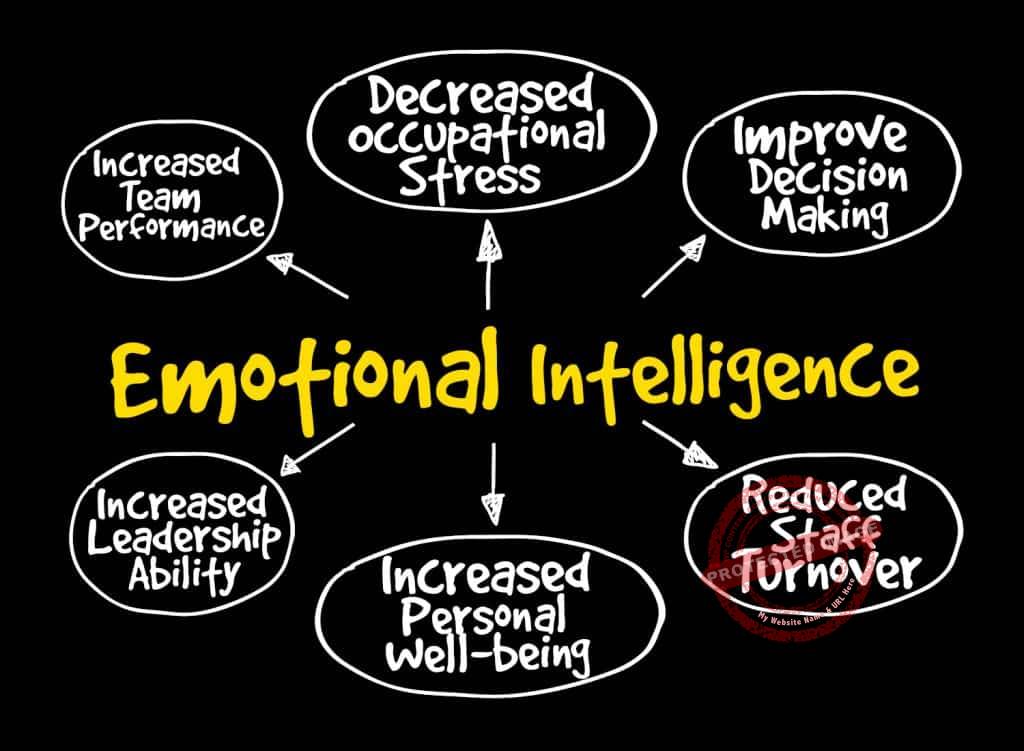
4. Emotional Intelligence Helps You Motivate Yourself To Achieve Your Goals
Another important benefit of emotional intelligence is how it helps you achieve your goals.
Intrinsic motivation or self-motivation is one of the strongest forms/sources of motivation.
Building emotional intelligence helps you identify and understand your emotions.
With your understanding of your emotions, you can learn to motivate yourself to achieve your goals.
More so, you can learn to control your emotions and how you react to tough situations.
Overall, emotional intelligence helps you manage difficult situations easily.
Thus helping you achieve your goals despite challenging situations.
5. Emotional Intelligence Helps To Boost Your Self-confidence
Emotional intelligence helps you achieve self-awareness.
This self-awareness comes from understanding your emotions and actions.
More so, you’ll become aware of your strengths and weaknesses.
Thereby, helping you focus more on your strengths and working hard to improve your weaknesses.
Furthermore, this helps you to become more confident about your abilities.
Conclusion On How To Build Emotional Intelligence

Emotional intelligence is a very important concept that has a great impact on the business world, the world of work.
It also influences our social relationships and personal relationship.
It is what determines how you work as an employee, how you lead as a leader, and the kind of relationships you build as a business owner.
More so, it is what determines an individual level of success in every area of life.
This is because it influences how you react to challenges, how you interact with people, which are all key determinants to achieving success.
Hence, if you want to be a better person overall, capable of building great relationships and achieve success;
Work on building your emotional intelligence.
Use these tips to develop the 5 essential skills mentioned above so you can build emotional intelligence.
How can you rate your level of emotional intelligence?
Please share your thoughts with us in the comments section below.
Click on Buy Now For A PDF Version of This Blog Post
 |
